
Candida Martinelli's Italophile Site

Main
Page This family-friendly site celebrates Italian culture for the enjoyment of children and
adults. Site-Overview
My Two New Italophile Sites
Italophile Book Reviews offers personal views on many books that
might interest lovers of Italy. Authors and Publishers: I
review books set in Italy, or about Italy and Italian culture, or about
hyphenated Italian culture. My site is family-friendly. Indie (Self)
published books, and small publishing houses are welcome. Contact:
info @ italophiles.com Italophile Books is
an Amazon.com linked shop that has only products Italophiles are sure to
love. Shop with no distractions! You can click through to
the full Amazon.com site at any time, keeping your shopping cart.
Checkout is through Amazon.com's usual secure system. Video of Ancient City of Rome below Reclining Banqueter These beautiful images
are from Ancient Roman mosaics in Tunisia, from Tunisia
Online.
The Wine Pourer Serving the wine On the hunt Boating Fishing Animals A Poet
Ancient Roman Kitchen
A Wealthy Ancient Roman's Bedroom
Monty Python's famous 'What have the Romans ever done for us?' scene
from the film Life of Brian, about a man mistaken for the Messiah
throughout his sad life.
Here are two wonderful simulations of an Ancient Roman house.
Some links:
A site visitor, Theresa
Caruso, has written
an article about the history of the Roman Colosseum for the holiday
accommodation site Venere.com. Open, from my site, the PDF of a classic textbook
about Ancient Rome and save it to your PC. Or right-click on the
link and Save Link As to your PC without opening the book. Or for an online, concise history of Ancient Rome, visit this
educational site.
This
digital map of the ancient city of Rome will help keep your
characters whereabouts clear.
To see how the characters would have travelled around the Roman empire,
check out this ancient Roman
route-planner.
A beautiful video tour of ancient
Rome, which brings the place alive. It is made by the
Rome Reborn Project.
Homeschooler Heather Ventura's Ancient Rome Links
And a great site: The
Detective and the Toga.
The most complete company for Roman reproductions, of museum quality
coins, jewelry, etc., is
Westair.
Visit their website and have fun visiting the ancient past.
Also see my
pages: Historical
Novels set in Italy
For fans of Indie E-books
Enter keywords in the
Smashwords
search bar, followed by a comma (for example: mystery, ancient rome,
fiction,) to locate the books that interest you. The books are
available in various e-book formats for immediate download. And
there are over 30,000 free e-books!
Visit
my Marcus
Aurelius's Meditations page
Visit
my Ancient
Roman History page
Pompeii has inspired artists and writers over the years, so there are
many accounts and images of the doomed town. My
Pompeii page has one account and many images.
Visit my 'Living in Ancient Rome'
page
Ruth Downie' /
Gaius Petreius Ruso Lindsey
Davis / Marcus Didius Falco
Jane Finnis / Aurelia Marcella Caroline
Lawrence / Flavia Gemina John
Maddox Robert / Decius Cecilius Metellus Steven
Saylor / Gordianus the Finder
Mayer-Reed / John the Lord Chamberlain David
Wishart / Marcus Corvinus
Albert Bell / Pliny the
Younger
Marilyn Todd / Claudia
Seferius Mysteries set in Ancient Rome are enormously popular and prolific.
These authors produce series with a central recurring character,
that have been running successfully for many years. A warning to new readers: Roman society was one in which sadism was institutionalized.
The whole society was sadistic and accepted sadism as normal.
Slavery. Human and animal sacrifices. Gladiator battles to the death for entertainment.
Slaying of animals for entertainment. Torture of
slaves, wives, daughters, criminals, enemies... Infanticide by
exposure. Sexual predation of children. Murder by
horrible means for criminals, enemies, and the innocent, for
entertainment.
I have read at least one book in many of these series.
I've created some lists of their books available from Amazon.com. Where there is not a list, I've put links to books,
and you can see at Amazon a full list of the author's books by clicking
on the author's name. Many of these books are available directly from the publishers. This link goes directly to Amazon.com's Kindle page for Ancient Rome
Mysteries. Ruth Downie's series, called Novels of the Roman Empire, is now at
six books and growing. The doctor and reluctant detective is Gaius Petreius Ruso "a military medicus, who transfers to the 20th Legion in the remote
Britannia port of Deva (now Chester) to start over after a ruinous
divorce and his father's death. Things go downhill from there."
From the first pages of Medicus I was
intrigued with the protagonist, Gaius Petreius Ruso, an Ancient Roman
military doctor, and by his world. A Roman military doctor's job feels
timeless in the hands of the author: soldiers' injuries from training,
fights, and dangerous recreation; the local services surrounding the
camp; under-staffing and less than perfectly-trained hospital
personnel. The element that stands out from the start of the
book, however, is the element that should stand out in all novels set in
the Ancient Roman Empire: slavery. The author of Medicus does
not shy away from slavery; she actually makes it central to the story. Medicus's subtitle is A Novel of the
Roman Empire. It is not billed as a An Ancient Roman Mystery
Novel because it is not one. Medicus is similar to Rosemary
Sutcliff's classic Eagle of the Ninth in the way the dramatic
story is supported by an underlying mystery. The principle story of
both books is how the diverse cultures, Roman and Celtic, co-existed and
eventually married in Britain. I think Medicus is a well-written
character-study of two people, and a historical romance novel rich with
humanity. Like all good romances, the two people, Ruso and Tilla, begin
by seeming worlds apart, and by the end of the book they seem a perfect
fit. They make a good couple, better together than they are apart, and
they share the same values. For me, Medicus was a book to savor, to read
slowly, to enjoy for the romance, the characters, the history, and for
the portrayal of the constants of humanity through place and time. Read my
full review at my
Italophile Book
Reviews blog. Marus Didius Falco is a private investigator working in first century Rome.
(Early Empire) He's described as 'Roman Emperor Vespasian's
smart-aleck PI'. Falco moves around Rome's empire, working for
hire even in Roman Britain. The back-flap says 'Falco is a lively protagonist who can't stay out
of trouble but always comes out of it with the mystery solved and his
sense of humor intact in this consistently fine series of historical
thrillers'. I have read most of the books in this series, including the first book.
The books take place in first century Rome, but are written in the first
person style
of the cynical Private Detective from the 1940s, writing his memoirs. I find the combination
disconcerting, but I think the author's sense of humor is what makes the
combination work. I also find the main character, Marcus Didius Falco rather stupid and
disturbingly masochistic, but perhaps it is the author, Lindsey Davis,
who is disturbingly sadistic to her protagonist? All joking
aside, Marcus does well to gain his clever sidekick in the first novel,
who sticks with him through the series. I noticed many elements in the early books
that seem to be inspired by the masterly Wallace Breem's
historical novels: The Eagle in the Snow
and The Legate's Daughter. The series has a dedicated following.
Many fans of the series appear to enjoy the main character's
down-to-earth family life
more than the criminal case that moves the plot along. Read
my review at my
Italophile Book Reviews site. The books in the series are in order:
My list of this author's
books at Amazon.com Ms. Davis has presumably ended her series featuring
private detective (informer) Didius Falco. She is now producing a
series featuring Falco's adopted daughter, Flavia Alba, who has followed
in her father's footsteps, and is an informer working only for female
clients. The style of the new series is a bit different from the
Falco books, less hard-boiled detective humor, and more of the female
perspective that Falco's partner, Helena Justina, offered in the Falco
series. It is written in the first person, too. There are two books in the series so
far. The Ides of April Enemies at Home From the
Poisoned Pen Press website about the first book in the series: Roman Britain in 91 AD is a troublesome part of
the mighty Empire ruled by Domitian Caesar. Tension is especially
high in the north, where Aurelia Marcella, a young innkeeper from
Italy, runs the Oak Tree Mansio on the road to York. A
traveler, Quintus, is nearly killed close to the inn. Soon he and
Aurelia team up to track down the rebel warriors and identify their
mysterious masked leader, the Shadow of Death. Quintus becomes a recurring character in the series, as
do Aurelia's twin brother, their sister, and assorted other relations
and friends. The series is narrated by Aurelia, in the first
person, with hindsight. The series is up to four books now:
Please read my
full review of Danger in the Wind and the series at my Italophile
Book Reviews site. Flavia Gemina is a 'girl-detective' in first century Rome, in this
series for children ages 9-14, written at the appropriate level,
in the third person. Flavia lives in Ostia, Rome's
port, with her sea captain father. She solves mysteries with an
assortment of friends from a wide range of Roman life. The series
is called "Roman Mysteries" and is now a TV series on the BBC. Publisher's Weekly says 'this historical mystery series offers an
intriguing glimpse into the customs, attitudes and class systems of the
Roman empire'. They do warn that the books are a bit violent, but
admit they were violent times. The books in the series in order:
My list of this author's
books at Amazon.com Decius Cecilius Metellus is described as 'a would-be playboy son of
an illustrious family'. The series is called the 'SPQR' series,
SPQR means The Roman Republic, or the Senate and People of Rome.
It is written in the first person. The books are described as 'fast-paced', 'accurate', 'evocative'.
Decius is a born investigator who works his way up the Roman
civil-service during the last years of the Roman Republic. And
indeed, the writing is not pompous or pretentious but spare and wears
its erudition lightly. The first book describes Decius's first big investigation in 70
B.C. The stories are told in the first person, as if
Decius were writing his memoirs late in life. This provides us
with entertaining hindsight about many of the famous characters,
through the eyes of decent Decius. I've read the first book in the series, but had to go
slow to take in all the Roman terms and concepts, not to mention the
political institutions. The author explains all you need to know,
and even includes a Glossary, but the names and concepts take some getting used to. Read
my review at my
Italophile Book Reviews site. The books in the series in order:
My list of this author's
books at Amazon.com Libertus is a mosaicist and an expert in puzzles and patterns.
He lives in Ancient Roman Britain and takes on problems for his clients
and others. The series is written in the first person. The author offers lots of details about life on the fringe of the Roman
Empire, and has lots of light humor in her tales. The books in the series in order:
My list of this author's
books at Amazon.com Gordianus is a private investigator, called a Finder, working around 50 B.C.
in Rome. This series is rich with history and historical
figures. Gordianus even counts Cicero as his friend. The series is called the
"Roma Sub Rosa" series, meaning "the secret events of Rome". I've read most of the books in this series. The books are recounted in the first person, with the rather
seedy Gordianus as the narrator. It reads as if Gordianus
writes the account only very shortly after it occurs, so any really
interesting historical insight is missing. I also found the
writing style pompous. If you enjoy paragraph after paragraph of
descriptions of heat and setting or rising suns, you'll like his style. The books progressively become more history than mystery plot. Saylor indulges in his books in the
misogyny and sadism of the times with a bit too much enthusiasm for my
tastes. If you are into a vicarious, voyeuristic experience of
this sort, then this is your series. Gordianus even owns a
female slave who is his housekeeper and sex-toy. The second and third "books" in the series are actually collections
of short stories that are more like "Ellery Queen Mystery Magazine"
stories, aimed at a teenaged audience. The books in the series,
however, are aimed at an adult audience, which can be disconcerting. The author ages Gordianus quickly over the course of the early books.
The lastest book, The Seven Wonders, is a prequel set before the
first book in the series.
I noticed many elements in the early books
that seem to be inspired by the masterly Wallace Breem's
historical novels: The Eagle in the Snow
and The Legate's Daughter. Read
my review at my
Italophile Book Reviews site. The books in the series in order:
My list of this author's
books at Amazon.com From the
Poisoned Pen Press website: "Byzantium, capitol of the 6th century Roman Empire,
simmers a rich stew of creeds, cultures, and citizens with a sprinkling
of cutthroats and crimes. John the Eunuch, Emperor Justinian’s
Lord Chamberlain, orders a Christian court while himself observing
the rites of Mithra." No need to say that people die, and John discovers who
the killer is and the story behind the murder. A unique character
set in a fascinating era, written in the third person. The series is up to nine books:
Marcus Corvinus is a member of the Senatorial class in first century
Rome. He is assisted in his criminal investigations by his
intelligent wife, Perilla. The first person narrator of the series is Marcus Corvinus himself, a
fictionalize version of the real man. Purporting to be the vulgar,
slangy Latin that we know from Ancient Roman poetry and from the scraps
of novels that have survived, Corvinus's narration is joyously vulgar.
The fictional conceit is that we are reading Latin that appears as
English. All the English equivalents of the Roman's bawdy, rough
language are used to convey that effect. The author knows his Roman history and seems to thoroughly
enjoy thrashing it about in the cause of pure entertainment. That
is what the Corvinus books are: pure entertainment. Don't expect
literature. Just sit back, read, and revel in the joyous nonsense
and historical frolicking that the author concocts. The series books in order are:
My list of this author's
books at Amazon.com Mr. Bell uses the real historical figure of Pliny
the Younger, a first century Roman politician, writer and
scientist, as his ancient Roman detective. The books in the series in order are:
Claudia lives in Ancient Rome circa 10 B.C. She's
had a hard first few decades, but then marries well, and is quickly
widowed. She runs her husband's wine business and solves crimes in
her spare time, sometimes with the help or obstruction of a Roman
official, Marcus Cornelius Orbilio, who secretly has the hots for her.
These are not cozy novels, despite the books' cozy covers. All the
novels feature perverse sex and sex crimes. The books in the series are: Please read my
full review of Sour Grapes and the series at my Italophile Book
Reviews site. If you want to find other series, or information
about Ancient Rome, you can use this Search tool for Amazon.com. Just enter 'Books' in the
'Search' field, and
'ancient Rome mystery' (for example, or 'ancient Rome history') in the
'Keywords' field. Then click on the 'Go' button.
Rome Reborn 2.2: A Tour of Ancient Rome in 320 CE from Bernard Frischer on Vimeo.

Mystery
Book Series Set in the Ancient Roman Empire
![]()
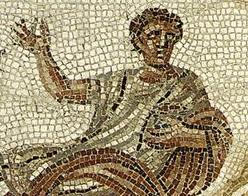
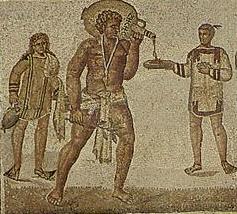
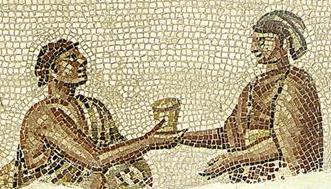
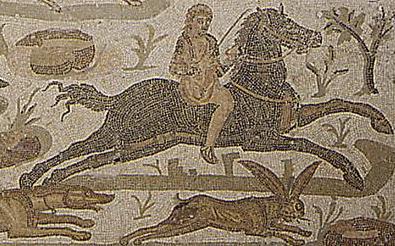
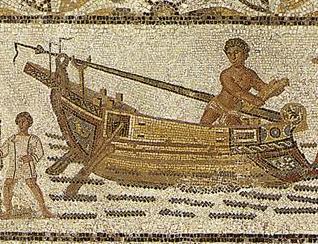
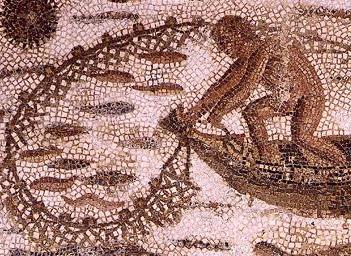
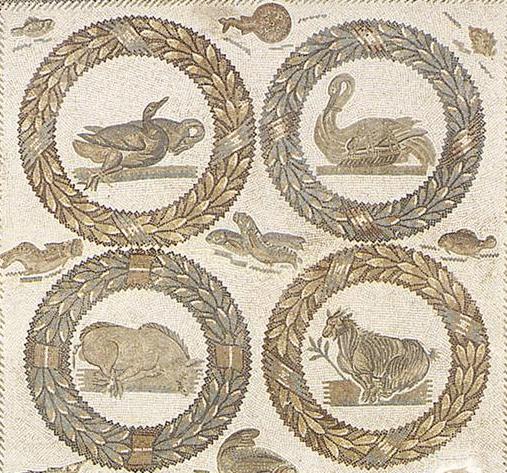
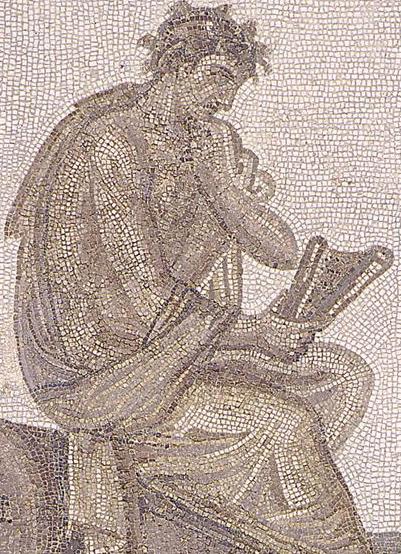
![]()
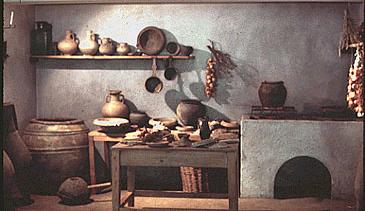
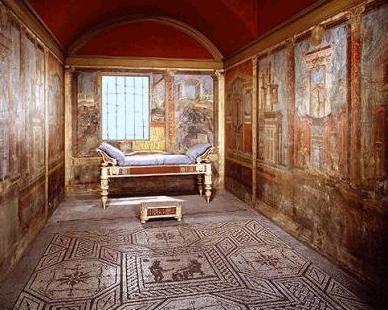
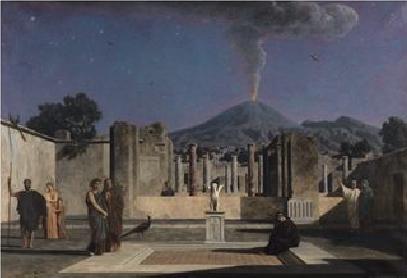
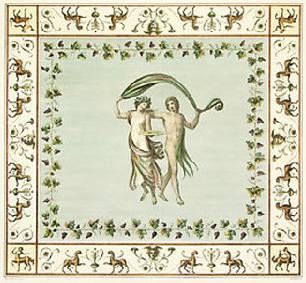
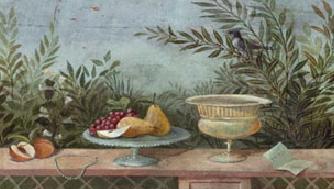
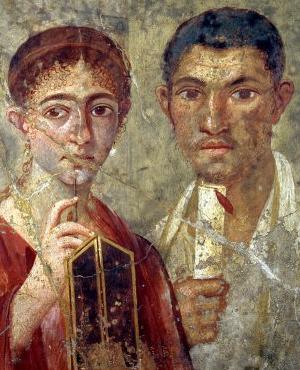

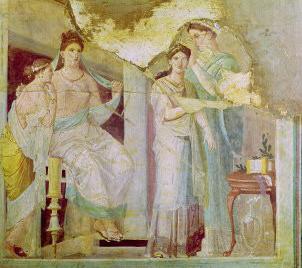
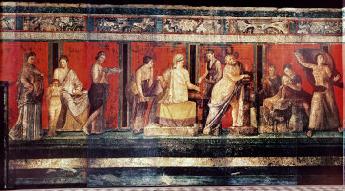
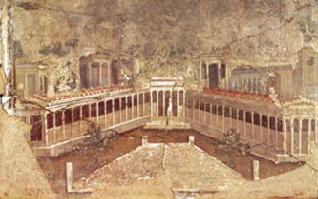
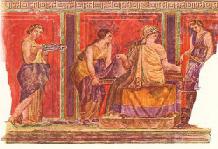
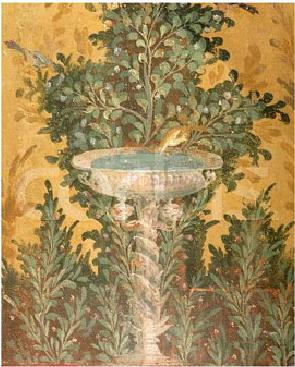
![]()
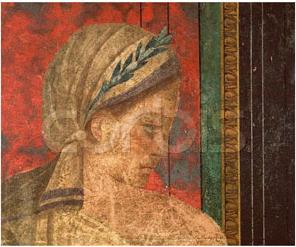
![]()
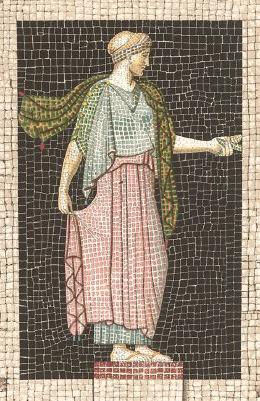

![]()
Introduction
Ruth Downie's Army Doctor Gaius Petreius
Ruso
Lindsey Davis's Marcus
Didius Falco
Lindsey Davis's
Flavia Alba
Jane Finnis's
Aurelia Marcella
Caroline Lawrence's
Flavia Gemina
John Maddox
Roberts's Decius Cecilius Metellus
Rosemary Rowe's Libertus
Steven Saylor's
Gordianus the Finder
Eric Mayer
and Mary Reed's John the Lord Chamberlain
David Wishart's Marcus
Corvinus
Albert Bell's Pliny the Younger
Marilyn Todd's
Claudia Seferius
Search Amazon.com for Other Books